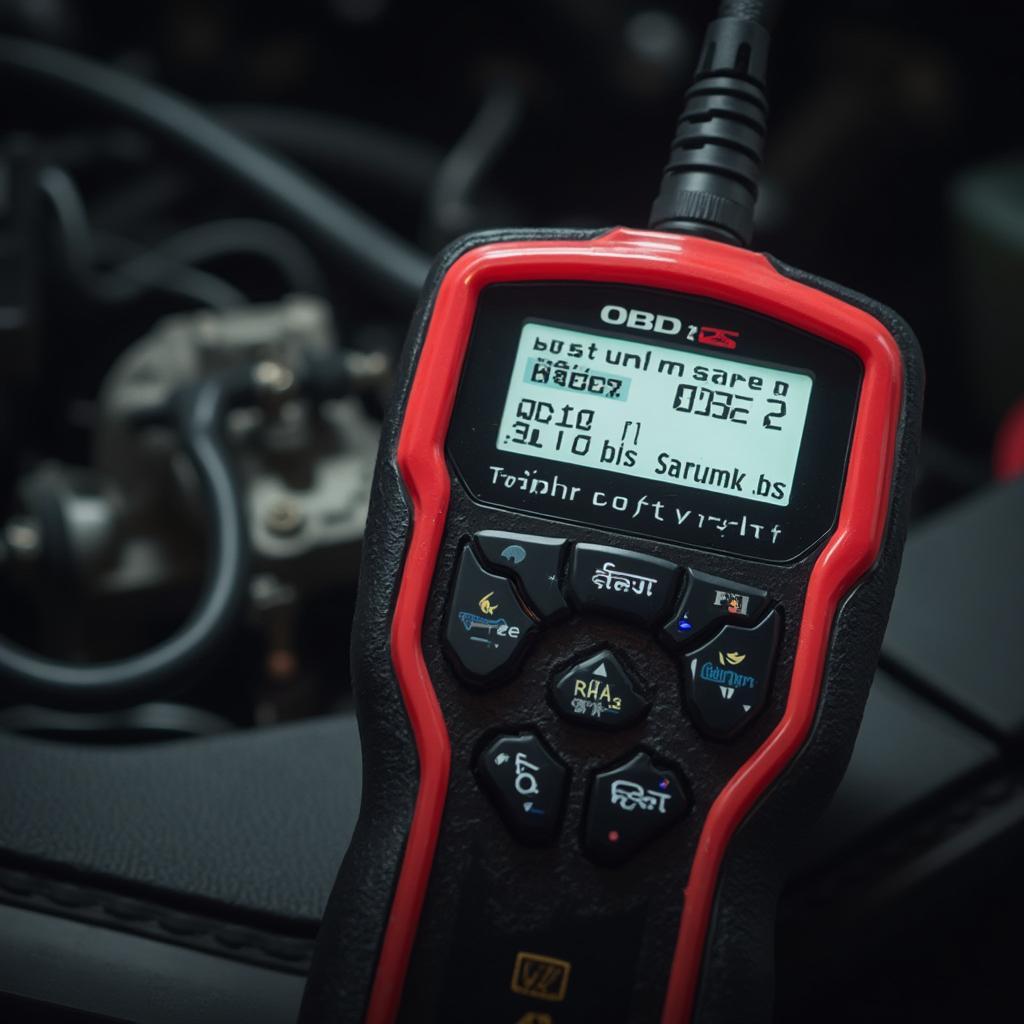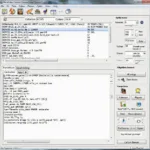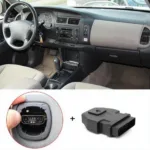Can your OBD2 scanner predict impending coil failure? This is a question many car owners and mechanics are asking, as early detection can save significant time and money. Using OBD2 readings to predict coil failure is becoming increasingly important in modern vehicle diagnostics. While an OBD2 scanner might not directly tell you “coil failure imminent,” it can provide clues that point towards potential problems with your ignition coils.
Understanding these clues and using them in conjunction with other diagnostic methods can help you preemptively address coil issues before they leave you stranded. This article explores how to use your OBD2 scanner to identify potential coil failure, interpret the readings, and take the necessary steps to prevent a breakdown. We’ll cover everything from understanding OBD2 codes related to coil issues to the limitations of OBD2 diagnostics and complementary testing methods.
Decoding the Clues: OBD2 Codes and Coil Failure
The first step in using your OBD2 scanner to predict coil failure is understanding the relevant trouble codes. Codes like P0300 (Random/Multiple Cylinder Misfire Detected), P0301 (Cylinder 1 Misfire Detected), P0302 (Cylinder 2 Misfire Detected), and so on, can indicate a problem with your ignition coils. These codes essentially tell you that the engine’s computer has detected a misfire in one or more cylinders.
While a misfire doesn’t always mean a faulty coil, it’s a strong indicator. Other potential causes include spark plugs, fuel injectors, or even compression issues. However, if you’ve recently replaced your spark plugs and other components are functioning correctly, a faulty coil is often the culprit. Using a bmw x5 obd2 app can help you pinpoint the specific cylinder experiencing misfires, narrowing down the potential problem areas.
 OBD2 Scanner Displaying Misfire Codes
OBD2 Scanner Displaying Misfire Codes
Beyond the Codes: Analyzing OBD2 Data for Coil Health
Beyond specific misfire codes, other OBD2 data can provide valuable insights into the health of your ignition coils. For example, monitoring fuel trim readings can reveal imbalances caused by misfires. If your short-term fuel trim is consistently high on a specific cylinder, it could indicate a problem with the corresponding coil. Similarly, monitoring misfire counts over time can help you identify patterns and predict potential coil failure. A gradual increase in misfire counts on a particular cylinder could signal a weakening coil.
Can I Predict Coil Failure with Just an OBD2 Scanner?
While an OBD2 scanner is a powerful tool, it’s important to remember its limitations. It can’t definitively diagnose a failing coil. Instead, it provides clues and indicators that suggest potential problems. Think of it as a detective gathering evidence. The evidence points towards a suspect, but further investigation is needed to confirm the culprit.
Confirming the Diagnosis: Complementary Testing Methods
Once you’ve identified potential coil issues using your OBD2 scanner, it’s crucial to confirm the diagnosis with complementary testing methods. These include:
- Swap Test: Swapping the suspected faulty coil with a known good one from another cylinder and observing if the misfire code follows the coil.
- Resistance Test: Using a multimeter to measure the primary and secondary resistance of the coil and comparing the readings to the manufacturer’s specifications.
- Spark Test: Visually inspecting the spark produced by the coil to ensure it’s strong and consistent.
John Smith, a seasoned automotive technician at Smith Automotive, emphasizes the importance of a comprehensive approach: “OBD2 codes are a starting point, not a conclusion. Always confirm suspected coil issues with further testing to avoid unnecessary replacements.”
Preventive Measures and Maintaining Coil Health
While predicting coil failure with 100% certainty is challenging, proactive maintenance can significantly extend the lifespan of your ignition coils. This includes:
- Regularly inspecting spark plugs and replacing them as needed.
- Ensuring the proper gap between spark plugs.
- Using quality ignition components.
- Addressing any underlying engine issues that might stress the coils.
Jane Doe, Lead Engineer at AutoTech Solutions, adds, “Preventing coil failure is often as simple as following the manufacturer’s recommended maintenance schedule and using high-quality parts.”
Conclusion
Using OBD2 readings to predict coil failure is a valuable skill for any car owner or mechanic. While the OBD2 scanner can’t definitively diagnose a failing coil, it can provide crucial clues that, when combined with other diagnostic methods, can help you preemptively address coil issues before they become major problems. By understanding the relevant trouble codes, analyzing OBD2 data, and performing complementary tests, you can keep your engine running smoothly and avoid costly breakdowns.
FAQ
- What is the most common OBD2 code for coil failure? P0300 and its variations (P0301, P0302, etc.) are common indicators of potential coil problems.
- Can I drive with a misfire code? Driving with a misfire can damage your catalytic converter and other engine components. It’s best to address the issue promptly.
- How often should I replace my ignition coils? Consult your vehicle’s owner’s manual for the manufacturer’s recommended replacement interval.
- Are all ignition coils the same? No, ignition coils vary depending on the vehicle’s make and model.
- Can a bad coil cause other problems? Yes, a faulty coil can lead to issues like decreased fuel efficiency, rough idling, and even engine damage.
- What can cause premature coil failure? Factors like excessive heat, vibration, and faulty spark plugs can contribute to premature coil failure.
- How much does it cost to replace an ignition coil? The cost varies depending on the vehicle and the specific coil, but typically ranges from $50 to $200 per coil.
Need more support? Contact us via WhatsApp: +1(641)206-8880, or Email: [email protected]. Our customer support team is available 24/7.

